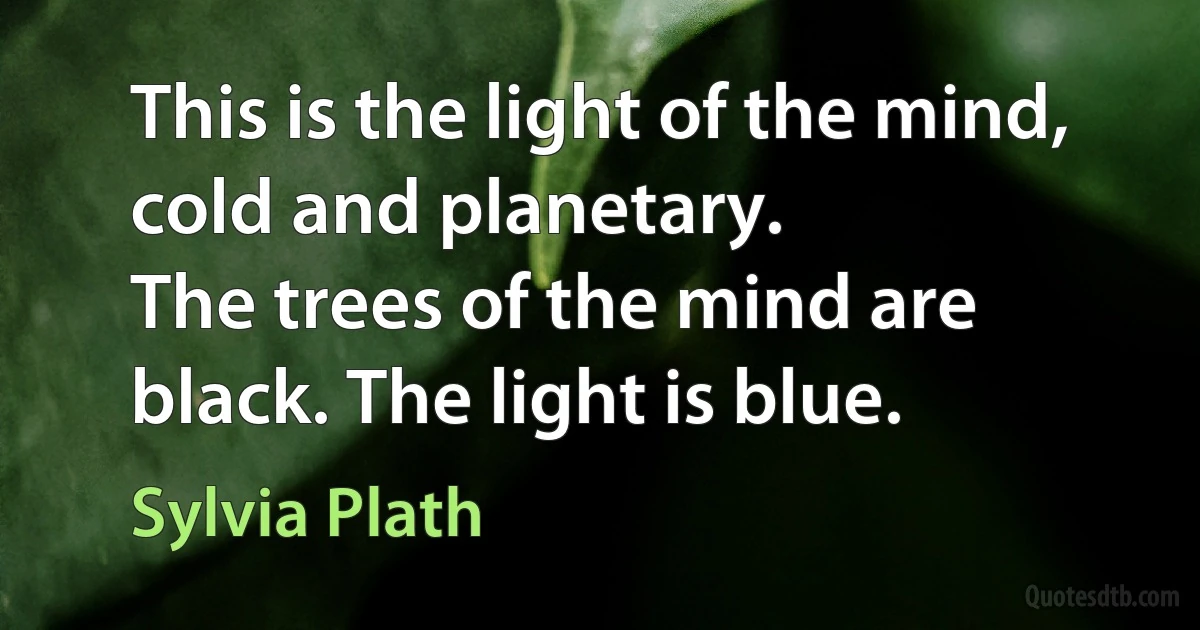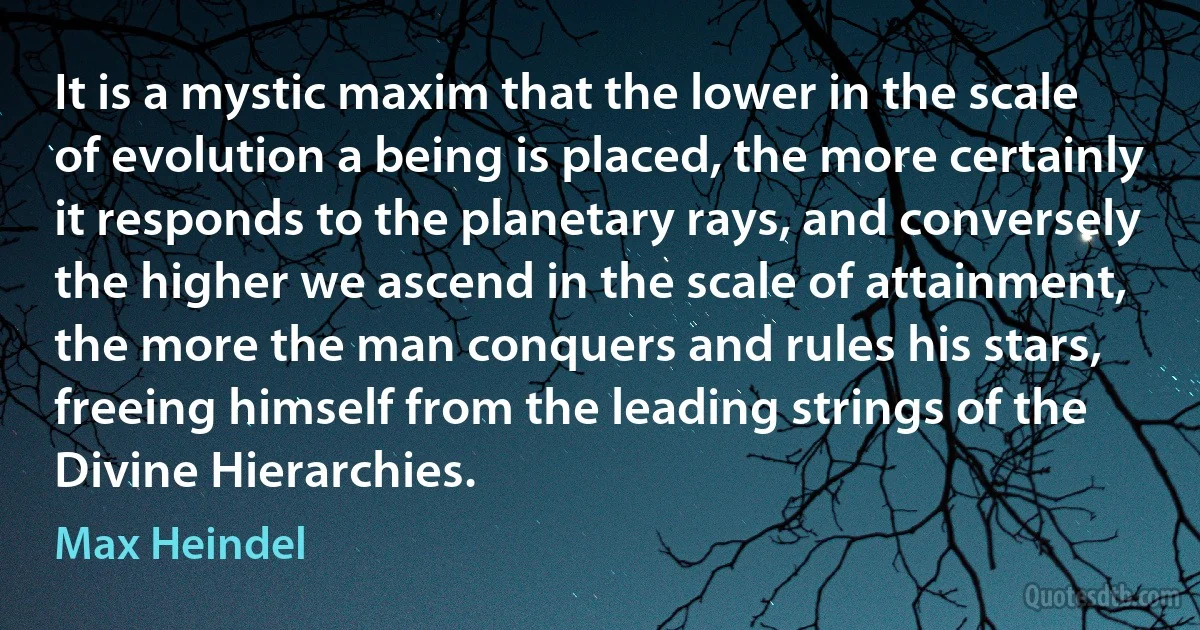Planetary Quotes
It has often been said that, if the human species fails to make a go of it here on the Earth, some other species will take over the running. In the sense of developing intelligence this is not correct. We have or soon will have, exhausted the necessary physical prerequisites so far as this planet is concerned. With coal gone, oil gone, high-grade metallic ores gone, no species however competent can make the long climb from primitive conditions to high-level technology. This is a one-shot affair. If we fail, this planetary system fails so far as intelligence is concerned.

Fred Hoyle
Mr. Darwin's hypothesis is not, so far as I am aware, inconsistent with any known biological fact; on the contrary, if admitted, the facts of Development, of Comparative Anatomy, of Geographical Distribution, and of Palaeontology, become connected together, and exhibit a meaning such as they never possessed before; and I, for one, am fully convinced that if not precisely true, that hypothesis is as near an approximation to the truth as, for example, the Copernican hypothesis was to the true theory of the planetary motions.

Thomas Henry Huxley
My reluctance to use alien invasion is due to the feeling that we are not likely to be invaded and taken over. It would seem to me that by the time a race has achieved deep space capability it would have matured to a point where it would have no thought of dominating another intelligent species. Further than this, there should be no economic necessity of its doing so. By the time it was able to go into deep space, it must have arrived at an energy source which would not be based on planetary natural resources.

Clifford D. Simak
Some people think that our planet is suffering from a fever. Now scientists are telling us that Mars is experiencing its own planetary warming: Martian warming. This has led some people, not necessarily scientists, to wonder if Mars and Jupiter, non signatories to the Kyoto Treaty, are actually inhabited by alien SUV-driving industrialists.

Fred Thompson
I see the situation of man in the world of planetary technicity not as an inexitricable and inescapable destiny, but I see the task of thought precisely in this, that within its own limits it helps man as such achieve a satisfactory relationship to the essence of technicity. National Socialism did indeed go in this direction. Those people, however, were far too poorly equipped for thought to arrive at a really explicit relationship to what is happening today and has been underway for the past 300 years.

Martin Heidegger
A permanent base on Mars would have a number of advantages beyond being a bonanza for planetary science and geology. If, as some evidence suggests, exotic micro-organisms have arisen independently of terrestrial life, studying them could revolutionise biology, medicine and biotechnology.

Paul Davies
Thanks to farm subsidies, the fine collaboration between agribusiness and Congress, soy, corn and cattle became king. And chicken soon joined them on the throne. It was during this period that the cycle of dietary and planetary destruction began, the thing we're only realizing just now.

Mark Bittman
In Europe we see different visions of government in an interdependent world. Across the world we see a new order struggling to be born, one based on the rule of law and addressing the planetary imperatives of tackling mass poverty and global warming. These changes in governance are not to be feared but rather to be embraced. It is, after all, the essence of democracy that what has always been so, need not always be so.

Alex Salmond
Use of better planetary parameters, the innovations in astronomical methods, and the concise style of exposition of Aryabhatiya makes it an excellent text book on Astronomy. As opposed to the geostationary theory, Aryahabata held the view that the earth rotates on its axis. His estimate of the period of the sidereal rotation of earth was 23 hours 56 min, and 4.1 s is close to the actual value.

Aryabhata
For a hundred and fifty years or so democracy, or something like it, could flourish safely. The issues were such as to be settled without disaster by votes of common men, befogged and ignorant as they were. But now, if the race is simply to stay alive, political decisions depend on real knowledge of such things as nuclear physics, planetary ecology, genetic theory, even system mechanics. They aren't up to it, Joe. With goodness and more will than they possess less than one in a thousand could stay awake over one page of nuclear physics; they can't learn what they must know.

Robert A. Heinlein
It is not within our province to inquire by what process, and in what condition the Almighty brought matter into existence-what the space was which it occupied, or what the forms were which it assumed. Of such things we know nothing. In the depths of primeval time, the globe we inhabit may have a planetary existence, wheeling along its ethereal railway without a breathing passenger to count its periods, and without a living plant to measure the day by its opening and closing blossoms, or to mark the rolling seasons by the yearly increments of its stem. Or it may have been the theatre on which vast cycles of animal and vegetable life have been run- now its birthplace, and now its grave: But we have no data to guide us in our conjectures, and even imagination fails us if we call it to our aid. Whatever may have been, had ceased to be at the commencement of our history, when the primary rocks, forming the moten nucleus of the globe, were first exposed to the action of the elements.

David Brewster
Neither Lynn Margulis nor I have ever proposed a teleological hypothesis. Nowhere in our writing do we express the idea that planetary self-regulation is purposeful, or involves planetary foresight or planning by the biota. ...Yet we met persistent, almost dogmatic, criticism that our hypothesis is teleological.

James Lovelock
What the probe had found was a star with reasonable possibilities for encouraging life; a belt of debris, including particles, planetoids, irregular chunks somewhat under planet size with interesting implications for systemic formation, and a planetary companion with its own system of debris and moons...A planet desolate, baked, forbidding. It was no Eden, no second Earth, no better than what existed in the sun's own system, and it was a far journey to have gone to find that out. The press grappled with questions it could not easily grasp itself, sought after something to give the viewers, lost interest quickly. If anything, there were questions raised about cost, vague and desperate comparisons offered to Columbus, and the press hared off quickly onto a political crisis in the Mediterranean, much more comprehensible and far bloodier.

C. J. Cherryh

![We are taught all this [the motion of the earth on its axis and around the sun] by the order of succession, in which those phenomena (various planetary happenings) follow each other, and by the harmony of the world, if we will only, as the saying goes, look at the matter with both eyes. (Nicolaus Copernicus)](https://cdn.quotesdtb.com/img/quotes_images_webp/38/nicolaus-copernicus-axis-earth-148238.webp)

